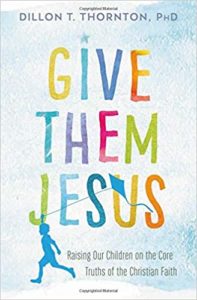“Pastor Chris, what is the single most important need of your church?” “Catechesis,” I respond.
The puzzled look that usually follows becomes an unspoken invitation to explain. “It’s a tradition that goes back to the early centuries of the church,” I tell them, “a process of prayerfully and carefully imparting the Christian faith to children and to new converts.”
One of two reactions generally follows: skepticism or enthusiastic agreement. The former response comes from those who still harbor resentment toward their denomination for the massive amount of memorization required of them at age seven. The latter, however, appreciate that from time immemorial God has called moms and dads to actively cultivate their children’s hearts and minds in faithful devotion to the Lord. So Deut 6:4-9:
Hear, O Israel: The Lord our God, the Lord is one. Love the Lord your God with all your heart and with all your soul and with all your strength. These commandments that I give you today are to be on your hearts. Impress them on your children. Talk about them when you sit at home and when you walk along the road, when you lie down and when you get up. Tie them as symbols on your hands and bind them on your foreheads. Write them on the doorframes of your houses and on your gates.
The older I get, the more I recognize this enterprise of raising children in the way of Jesus as our most important need. As John Calvin put it writing to the Lord Protector of England in 1548, “Believe me, Monseigneur, the church of God will never be preserved without catechesis.”
In light of this need, it is my great pleasure to commend the new book, Give Them Jesus: Raising Our Children on the Core Truths of the Christian Faith, by Dr. Dillon T. Thornton. Pastorally warm and winsomely articulate, this volume equips parents with the tools to effectively teach children core truths of Christianity and prepare them to embody such faith in the world. The following interview with Dr. Thornton provides a look at how he approaches the subject.

What is your biggest hope for Give Them Jesus? Why have you written this book?
I wrote the book primarily for parents, grandparents, and other guardians. The fundamental presupposition of the book is that Christian parents/guardians are responsible for the spiritual development of the children under their care. I am convinced that most parents feel this responsibility, though they have not been adequately equipped to fulfill it. Many years ago when I served as a children’s pastor, an important Barna study was published. The study revealed that roughly nine out of ten parents of children under the age of thirteen believe they have the primary responsibility for training their children in the faith, but a majority of these parents don’t spend any time during a typical week discussing spiritual truths with their children. Parents are not so much unwilling to provide spiritual training, the study concluded. The problem is that they are ill-equipped for the task. The research further indicated that many parents are not able to guide their children spiritually because they themselves do not have a firm grasp of the Christian faith. This is precisely why I wrote the book. My goal is to guide parents and guardians to a deeper understanding of the core truths of the historic Christian faith, and along the way to supply them with appropriate language, helpful illustrations, and relevant object lessons, so that in the end they will be better prepared to pass these truths on to their children. In short, I’m trying to help moms and dad rethink their roles and function faithfully, not just as parents, but as parent-theologians.
What does family worship look like in your home?
My boys are 10 and 8 now, and we’ve been gathering for worship in our home since they were very young. I think my youngest son, Cullen, first learned to recite the Apostles’ Creed when he was 3 or 4. Our family worship has taken different forms over the years. We started, as I suggest in the book, with learning the Apostles’ Creed together, and with me teaching through the Creed, which is, in essence, the gospel story. This is the story I want to tell my boys again and again. We’ve also had seasons where we’ve learned about church history together. When my boys were younger, I used Stephen Nichols’ excellent book The Church History ABCs. We love this book. In fact, after working through it together, my oldest son Aidan named his stuffed hippopotamus Augustine. That was a proud dad moment. We’ve also used the Christian Biographies for Young Readers series, published by Reformation Heritage. This is another excellent series, which introduces children to important people in the Christian tradition, such as Athanasius, Augustine, Martin Luther, and John Calvin. And most recently, we’ve simply been opening God’s Word together, reading through the Gospel of John. We take turns reading, a few verses at a time, and we’ll pause to talk about what the text is teaching us about God, God’s world, and our place in God’s world. But whatever our subject of study—whether it’s a doctrinal summary like the Apostles’ Creed, a character from church history, or a particular book of the Bible—I always try to include what I call the four essential elements of family worship: 1) teach, 2) treasure, 3) sing, and 4) pray.
What are some of the greatest obstacles parents must overcome if they hope to develop the practice of family worship in their home?
As I mentioned earlier, one obstacle is that many parents do not have a firm grasp of the Christian faith, and of course it’s impossible for me to teach my children about the virginal conception or bodily resurrection of Christ, for example, if I don’t know what I believe about these doctrines. I hope Give Them Jesus will help parents here; the book really is my attempt to smuggle some systematic theology into the average home, and I hope I’ve presented it in very family-friendly ways. The other great obstacle, I think, is our schedules. Every family I know is omni-occupied, crazy busy. Saying “yes” to family worship will mean saying “no” to something else. Concentration is elimination. If I want to concentrate on family worship, then I will need to eliminate something else. Maybe it means that my boys play two sports instead of three. Maybe it means that we place some strict limits on our screen time at night. Or maybe it means that we get up 30 minutes earlier during the week and meet at the breakfast table before the day carries us our separate ways.
How can parents help their children, especially young children, understand the very complex truths of Christianity?
As parents, we must have a firm grasp of the core truths of the historic Christian faith. This is the first step. We then need to develop ways of explaining these truths with accuracy and in child-friendly ways. In one of his essays, C.S. Lewis refers to “translating truth.” Lewis says, “I have come to the conviction that if you cannot translate your thoughts into uneducated (or “child-friendly”) language, then your thoughts were confused.” Throughout Give Them Jesus, I’ve tried to help parents clarify their own thoughts and then I’ve tried to assist them with the work of translation by providing illustrations, object lessons, and by phrasing fairly complex theology in elementary terms.
A related issue I should comment on here is the topics of Christian theology that, if fully expounded, are not exactly G rated. I think parents sometimes struggle with subjects like the crucifixion or the virgin birth, wondering if their young children are ready to hear about these things. Crucifixion is the sort of thing that can give even a grown man nightmares. It was savagely violent. Parents need to understand the magnitude of suffering Jesus endured for his people, but we’ll need to use discretion as we describe crucifixion to our children. Depending on the age of the child, certain details may need to be omitted. This omission does not mean that a parent has diluted the gospel. There is a difference between understanding the mechanics of Christ’s crucifixion and affirming the meaning of the event. The particulars of Roman crucifixion, such as the use of nails to hang the victim on the cross, may or may not be shared. The pivotal point to emphasize with our children is that Christ actually suffered and died for us.
Similarly, we can talk to our young children about the virginal conception. My 8-year-old son isn’t ready for basic biology discussions yet, but this doesn’t mean that I need to wait until later to teach him about Jesus’ birth. When we talk about Jesus’ journey to earth, I generally say something like, “Jesus was born in a special way to show us that he is both human and God.” We’ll talk about the “natural way” of conception as my son gets older, and then he’ll understand exactly how Jesus’ birth was “special” or “supernatural.”
In your opinion, what is the ultimate goal of parenting?
Contrary to popular belief and practice, the ultimate goal of parenting is not to condition record-breaking athletes or to develop brainiacs who win academic scholarships and eventually earn lucrative careers. Parents today tend to value most whatever it is they think will take their children farthest in life. Even many Christian parents have been duped into worshiping the success-promising trinity of good looks, good grades, and athletic ability. Having a high batting average is not a bad thing. But if my power-hitting sons don’t understand the greatness of God, I haven’t done my duty as a Christian parent. The ultimate goal of parenting is sending, sending our children out into the world as faithful participants in the great gospel story. This means that we must come to think of ourselves, not just as parents, but as parent-theologians. I suspect some people will hear the word “theologian” and immediately imagine an old guy with a Gandalf beard dwelling in a dusty study surrounded by big books. Granted, theologians need their books, but the thought of the theologian as an intellectual devoted solely to reading the works of dead guys while caring nothing about the world of the living is completely absurd. My favorite definition comes from Kevin Vanhoozer. Vanhoozer says a theologian is “[a person] who opens up the Scriptures to help [other] people understand God, the world, and themselves.” This is what parenting is all about; our ultimate task is to open the Bible and to help our children understand God, God’s world, and their place in it.
 Dillon T. Thornton (PhD in New Testament, University of Otago) has nearly two decades of diverse ministry experience. He has shepherded churches in Alabama, Colorado, and New Zealand. Presently, he serves as the Senior Pastor of Faith Community Church (EPC) in Seminole, FL. Dillon is a fellow of the Center for Pastor Theologians, a highly regarded organization of local church pastors who also serve as writing theologians for the broader Christian community. In his writing, preaching, teaching, and other aspects of pastoral work, Dillon seeks to equip people of all ages to love Christ with their whole hearts, think Christianly about the world and everything in it, and live faithfully by displaying the beautiful truth of the gospel in every sphere of life. In his spare time, Dillon does CrossFit, drinks far too much coffee, reads C.S. Lewis, and watches adventure movies. He and his wife, Jamie, have two energetic boys, Aidan and Cullen.
Dillon T. Thornton (PhD in New Testament, University of Otago) has nearly two decades of diverse ministry experience. He has shepherded churches in Alabama, Colorado, and New Zealand. Presently, he serves as the Senior Pastor of Faith Community Church (EPC) in Seminole, FL. Dillon is a fellow of the Center for Pastor Theologians, a highly regarded organization of local church pastors who also serve as writing theologians for the broader Christian community. In his writing, preaching, teaching, and other aspects of pastoral work, Dillon seeks to equip people of all ages to love Christ with their whole hearts, think Christianly about the world and everything in it, and live faithfully by displaying the beautiful truth of the gospel in every sphere of life. In his spare time, Dillon does CrossFit, drinks far too much coffee, reads C.S. Lewis, and watches adventure movies. He and his wife, Jamie, have two energetic boys, Aidan and Cullen.





